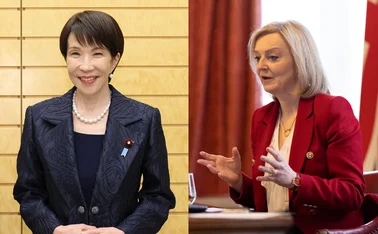
Draghi warns of dangers of ‘cliff-edge Brexit’
ECB president says some governments are endangering central bank independence

There could be “significant” risks to financial stability if the UK stages a “cliff-edge Brexit”, European Central Bank president Mario Draghi has warned.
If the UK managed an “orderly withdrawal” from the European Union there would be only a “limited overall risk to the euro area’s financial stability”, Draghi said in Indonesia on October 12. “However, the uncertainty triggered by a cliff-edge Brexit could have the potential to pose a more significant downside risk to financial stability.”
Hi
Only users who have a paid subscription or are part of a corporate subscription are able to print or copy content.
To access these options, along with all other subscription benefits, please contact info@centralbanking.com or view our subscription options here: www.centralbanking.com/subscriptions
You are currently unable to print this content. Please contact info@centralbanking.com to find out more.
You are currently unable to copy this content. Please contact info@centralbanking.com to find out more.
Copyright Infopro Digital Limited. All rights reserved.
As outlined in our terms and conditions, https://www.infopro-digital.com/terms-and-conditions/subscriptions/ (point 2.4), printing is limited to a single copy.
If you would like to purchase additional rights please email info@centralbanking.com
Copyright Infopro Digital Limited. All rights reserved.
You may share this content using our article tools. As outlined in our terms and conditions, https://www.infopro-digital.com/terms-and-conditions/subscriptions/ (clause 2.4), an Authorised User may only make one copy of the materials for their own personal use. You must also comply with the restrictions in clause 2.5.
If you would like to purchase additional rights please email info@centralbanking.com







